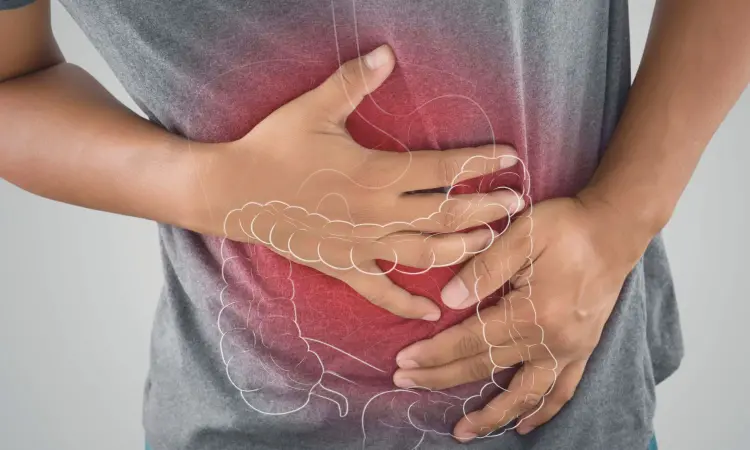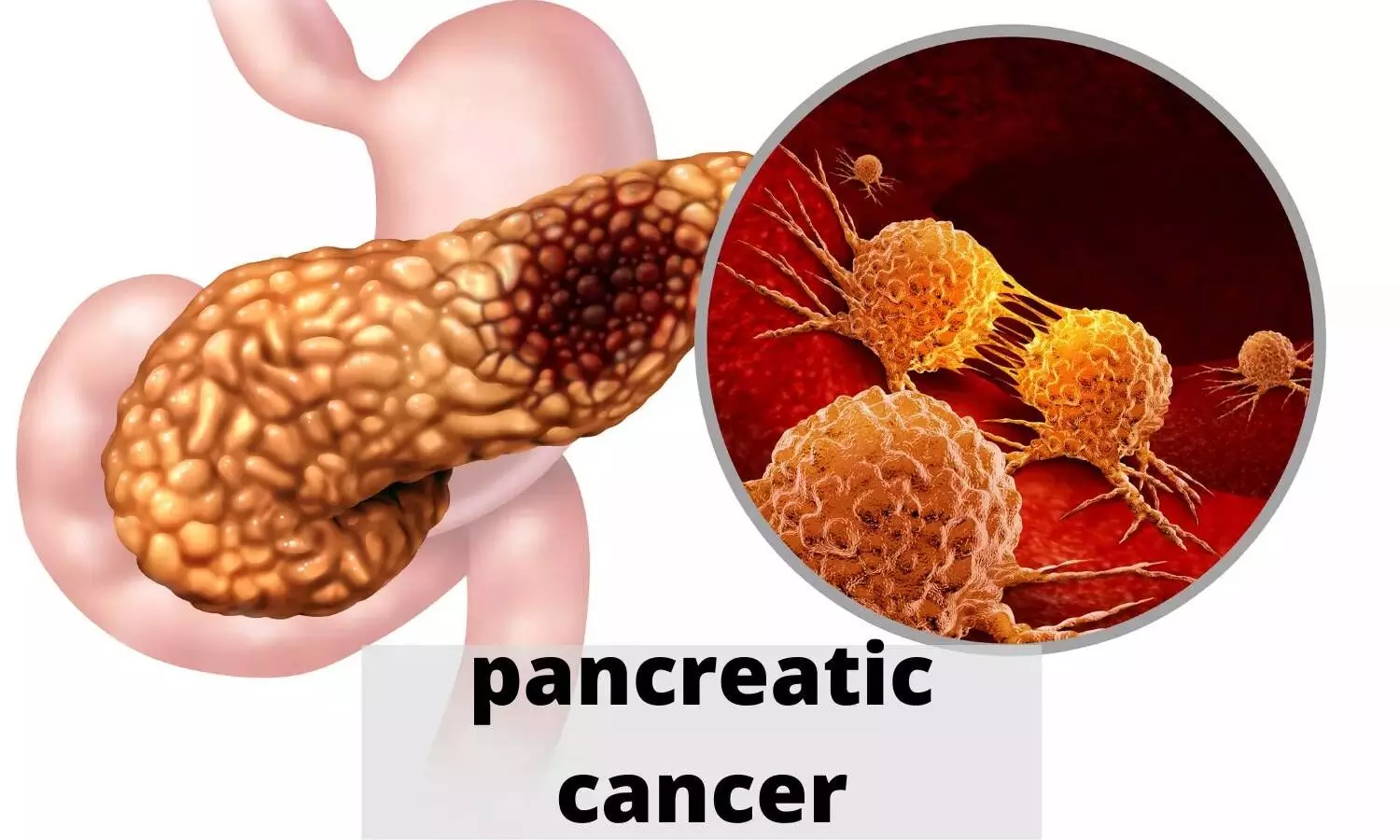- Home
- Medical news & Guidelines
- Anesthesiology
- Cardiology and CTVS
- Critical Care
- Dentistry
- Dermatology
- Diabetes and Endocrinology
- ENT
- Gastroenterology
- Medicine
- Nephrology
- Neurology
- Obstretics-Gynaecology
- Oncology
- Ophthalmology
- Orthopaedics
- Pediatrics-Neonatology
- Psychiatry
- Pulmonology
- Radiology
- Surgery
- Urology
- Laboratory Medicine
- Diet
- Nursing
- Paramedical
- Physiotherapy
- Health news
- Fact Check
- Bone Health Fact Check
- Brain Health Fact Check
- Cancer Related Fact Check
- Child Care Fact Check
- Dental and oral health fact check
- Diabetes and metabolic health fact check
- Diet and Nutrition Fact Check
- Eye and ENT Care Fact Check
- Fitness fact check
- Gut health fact check
- Heart health fact check
- Kidney health fact check
- Medical education fact check
- Men's health fact check
- Respiratory fact check
- Skin and hair care fact check
- Vaccine and Immunization fact check
- Women's health fact check
- AYUSH
- State News
- Andaman and Nicobar Islands
- Andhra Pradesh
- Arunachal Pradesh
- Assam
- Bihar
- Chandigarh
- Chattisgarh
- Dadra and Nagar Haveli
- Daman and Diu
- Delhi
- Goa
- Gujarat
- Haryana
- Himachal Pradesh
- Jammu & Kashmir
- Jharkhand
- Karnataka
- Kerala
- Ladakh
- Lakshadweep
- Madhya Pradesh
- Maharashtra
- Manipur
- Meghalaya
- Mizoram
- Nagaland
- Odisha
- Puducherry
- Punjab
- Rajasthan
- Sikkim
- Tamil Nadu
- Telangana
- Tripura
- Uttar Pradesh
- Uttrakhand
- West Bengal
- Medical Education
- Industry
Tirzepatide taken for weight loss may lead to Colonic Ischemia: Case report

A recent case published in the journal ACG CASE REPORTS JOURNAL found a possible risk of colonic ischemia caused by the usage of tirzepatide for weight loss. Tirzepatide is a glucagon-like peptide-1 (GLP-1) and glucose-dependent insulinotropic polypeptide (GIP) receptor agonist drug commonly prescribed for weight loss and Type 2 diabetes. Even though it is well tolerated, it can cause mild gastrointestinal side effects where the blood supply to the colon is reduced, leading to conditions like Colon ischemia.
The presented case was a 62-year-old woman who presented with acute onset abdominal pain and bloody stools. She had a history of obesity, venous thromboembolism, and heart failure with preserved ejection fraction. Previous screening for colorectal cancer showed benign polyps and diverticulosis. Medical history included once-a-week injections of tirzepatide 2.5mg subcutaneously along with apixaban 5mg twice daily, spironolactone 25 mg once daily, furosemide 20mg once daily, atorvastatin 20mg once daily, fluoxetine 30 mg once daily, lisinopril 2.5 mg once daily, and atenolol 37.5 mg once daily. Tirzepatide was started just 4 weeks before, after which she developed constipation.
The patient presented with lower abdominal cramping pain, an urge to defecate, and bloody stools lasting one day. The medical evaluation included imaging tests like the computed tomography scan showing the colon. A colonoscopy showed ischemia signs like denudation, sloughing, and crypt withering from the mid-sigmoid colon through the distal transverse colon. A tissue biopsy confirmed colonic ischemia. The patient was admitted to the hospital and treated with intravenous fluids, bowel rest, broad-spectrum antibiotics, and analgesics. Apixaban, furosemide, spironolactone, and tirzepatide were paused for the moment. The patient was discharged on day 3 of hospitalization due to rapid and spontaneous resolution of symptoms.
The above case is an eye-opener on the occurrence of colonic ischemia caused by occlusive ischemia secondary to tripeptide-induced constipation. This could be due to the volume depletion and subsequent hypo perfusion caused by increased stool burden and reduced cardiac output at the baseline. Previous literature has shown similar occurrences of colonic ischemia due to tirzepatide. Although the exact cause and association cannot be established, it can be suggested that constipation and volume depletion could be some of the significant factors contributing to colonic ischemia.
This case highlights the potential risk of colonic ischemia in individuals taking tirzepatide. Hence, careful evaluation of the patient should be done before prescribing this medication. Prior counselling, evaluation of drug history, maintaining hydration, and proactively monitoring the symptoms can reduce the risk of colonic ischemia.
Further reading: Bayless D, Singh J, Park BU, Sweetser S. Tirzepatide-Associated Colonic Ischemia. ACG Case Rep J. 2024;11(11):e01551. Published 2024 Nov 6. doi:10.14309/crj.0000000000001551
BDS, MDS
Dr.Niharika Harsha B (BDS,MDS) completed her BDS from Govt Dental College, Hyderabad and MDS from Dr.NTR University of health sciences(Now Kaloji Rao University). She has 4 years of private dental practice and worked for 2 years as Consultant Oral Radiologist at a Dental Imaging Centre in Hyderabad. She worked as Research Assistant and scientific writer in the development of Oral Anti cancer screening device with her seniors. She has a deep intriguing wish in writing highly engaging, captivating and informative medical content for a wider audience. She can be contacted at editorial@medicaldialogues.in.
Dr Kamal Kant Kohli-MBBS, DTCD- a chest specialist with more than 30 years of practice and a flair for writing clinical articles, Dr Kamal Kant Kohli joined Medical Dialogues as a Chief Editor of Medical News. Besides writing articles, as an editor, he proofreads and verifies all the medical content published on Medical Dialogues including those coming from journals, studies,medical conferences,guidelines etc. Email: drkohli@medicaldialogues.in. Contact no. 011-43720751




